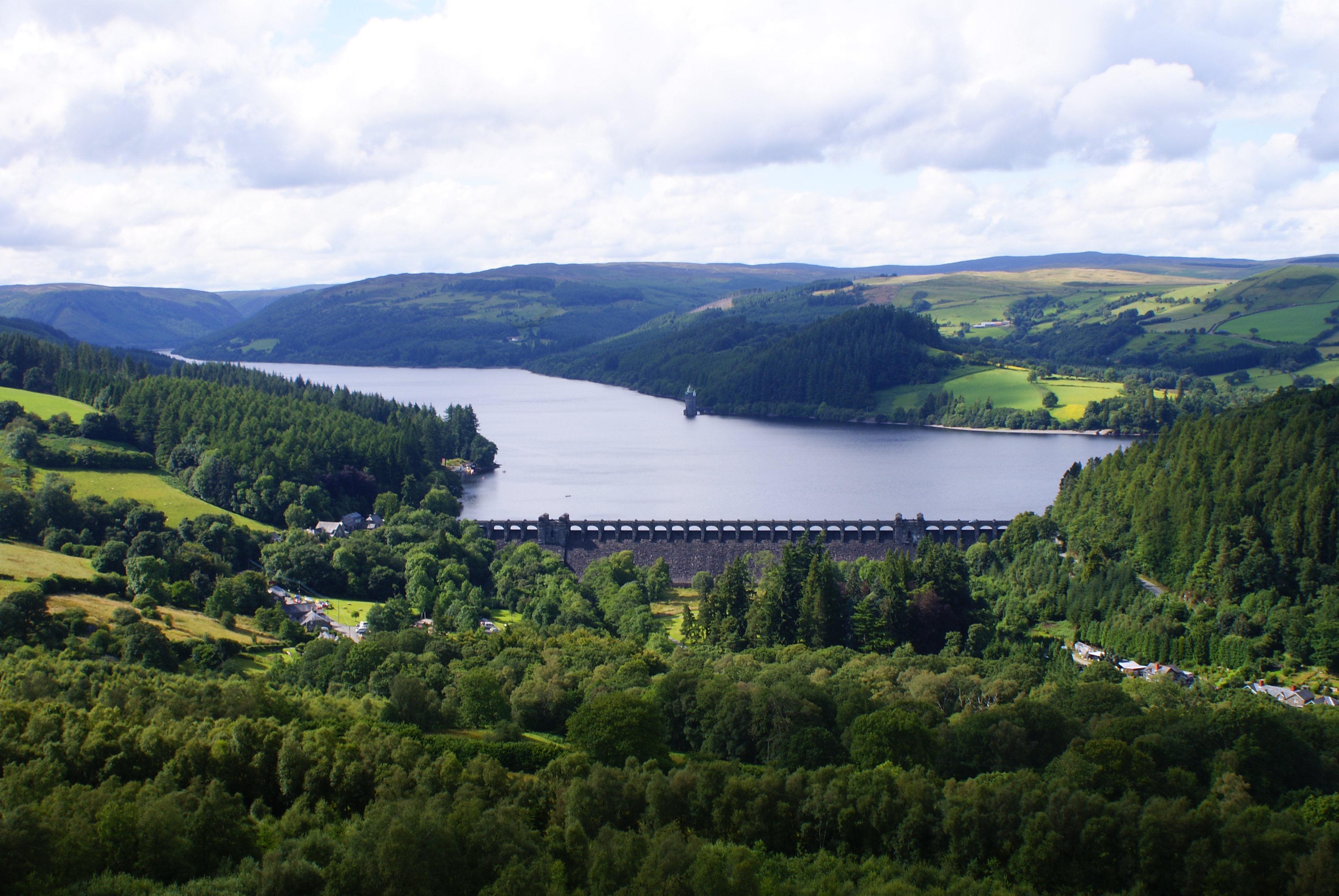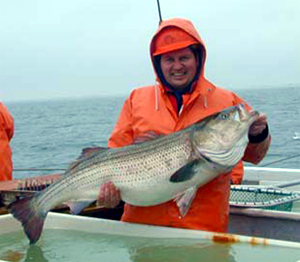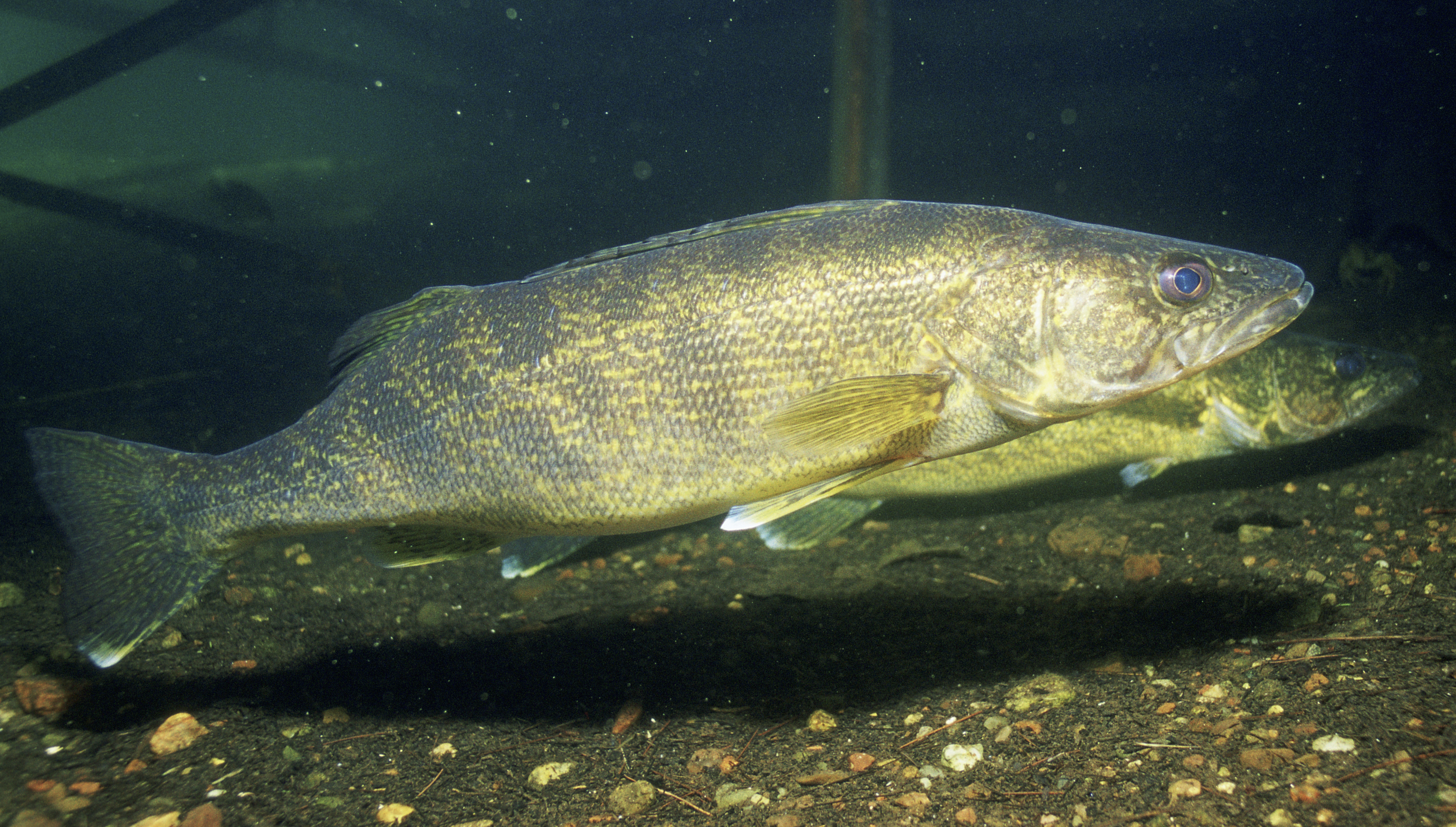|
Clinton Lake (Illinois)
Clinton Lake is a reservoir located near Clinton, Illinois. The lake is a part of the Clinton Lake State Recreation Area, which encompasses . It was built in the 1970s as a cooling source for the Clinton Nuclear Generating Station. The lake opened in 1978. Boating power is unrestricted on the main body of the lake; the upper arm of the lake is reserved as a no-wake area, and some limited areas are reserved for electric trolling motors. There are six boat launches on the lake, as well as one canoe launch. There is also a long sand beach on the lake which is open from Memorial Day to Labor Day; the beach includes a swimming area which is buoyed off from the rest of the lake. Clinton Lake is a good lake for catfish and other game fish. Other activities at Clinton Lake include camping, boating, swimming, water skiing, hiking trails, picnicking, hunting, and winter sports The various access and public use areas around Clinton Lake are collectively known as Clinton Lake State Recrea ... [...More Info...] [...Related Items...] OR: [Wikipedia] [Google] [Baidu] |
DeWitt County, Illinois
DeWitt County is a county located in the U.S. state of Illinois. As of the 2010 census, the population was 16,561. Its county seat is Clinton. The county was formed on March 1, 1839, from Macon and McLean counties. The county was named in honor of the seventh Governor of New York State, DeWitt Clinton. DeWitt County is included in Bloomington–Normal, IL Metropolitan Statistical Area. The U.S. Census Bureau and the USGS list the county's name as De Witt, although the county uses the name DeWitt (no space). History File:DeWitt County Illinois 1839.png, DeWitt County from its creation in 1839 to the splitting off of Piatt County in 1841 File:DeWitt County Illinois 1841.png, DeWitt County from 1841 to 1845 File:DeWitt County Illinois 1845.png, DeWitt County in 1845, when it was reduced to its current size Geography According to the U.S. Census Bureau, the county has a total area of , of which is land and (1.9%) is water. Climate and weather In recent years, averag ... [...More Info...] [...Related Items...] OR: [Wikipedia] [Google] [Baidu] |
White Crappie
The white crappie (''Pomoxis annularis'') is a freshwater fish found in North America, one of the two species of crappies. Alternate common names for the species include goldring and silver perch. is named for the fish. The genus name ''Pomoxis'' refers to crappies' sharp operculum, while the species name ''annularis'' means 'having rings', i.e., it has vaguely vertical bars on the body. Description White crappies are morphologically similar to black crappie. They have 5–10 dark vertical bars along their bodies, rather than the randomly scattered spots like the black crappie. The white crappie has a silvery color with green or brown shades along its back, with dark lateral bars along its side, and a white belly. The dorsal fins of the white crappie starts farther back on the body than those of the black crappie. The anal fin is about the same size as the dorsal fin. The white crappie has six dorsal fin spines, whereas the black crappie has seven or eight dorsal fin spines. W ... [...More Info...] [...Related Items...] OR: [Wikipedia] [Google] [Baidu] |
Reservoirs In Illinois
A reservoir (; from French ''réservoir'' ) is an enlarged lake behind a dam. Such a dam may be either artificial, built to store fresh water or it may be a natural formation. Reservoirs can be created in a number of ways, including controlling a watercourse that drains an existing body of water, interrupting a watercourse to form an embayment within it, through excavation, or building any number of retaining walls or levees. In other contexts, "reservoirs" may refer to storage spaces for various fluids; they may hold liquids or gasses, including hydrocarbons. ''Tank reservoirs'' store these in ground-level, elevated, or buried tanks. Tank reservoirs for water are also called cisterns. Most underground reservoirs are used to store liquids, principally either water or petroleum. Types Dammed valleys Dammed reservoirs are artificial lakes created and controlled by a dam constructed across a valley, and rely on the natural topography to provide most of the basin of the re ... [...More Info...] [...Related Items...] OR: [Wikipedia] [Google] [Baidu] |
Protected Areas Of DeWitt County, Illinois
Protection is any measure taken to guard a thing against damage caused by outside forces. Protection can be provided to physical objects, including organisms, to systems, and to intangible things like civil and political rights. Although the mechanisms for providing protection vary widely, the basic meaning of the term remains the same. This is illustrated by an explanation found in a manual on electrical wiring: Some kind of protection is a characteristic of all life, as living things have evolved at least some protective mechanisms to counter damaging environmental phenomena, such as ultraviolet light. Biological membranes such as bark on trees and skin on animals offer protection from various threats, with skin playing a key role in protecting organisms against pathogens and excessive water loss. Additional structures like scales and hair offer further protection from the elements and from predators, with some animals having features such as spines or camouflage s ... [...More Info...] [...Related Items...] OR: [Wikipedia] [Google] [Baidu] |
Farmer City
Farmer City is a city in DeWitt County, Illinois, United States. The population was 1,828 at the 2020 census. Farmer City is part of Blue Ridge Community Unit School District 18 sharing facilities with nearby Mansfield and Bellflower, Illinois. Farmer City facilities include the District Unit Office, the Ruth M. Schneider Elementary School (K-3) and Blue Ridge High School. On May 30, 2018, the city declared itself a second amendment sanctuary. History The Kickapoo and Potawatomi Native American tribes lived on the prairie and woodlands around Salt Creek and other local streams. The westward push of traders and adventurers led to settlers around 1825. Dennis Hurley is believed to be the first white settler in the area. Hurley built a cabin in the area, which became known as Hurley's Grove, with other families settling nearby. Some of the founding families were the Kirbys, McCords, Clearwaters, Watsons, Johnson, Webb, Blalach, Weedmans, Coveys, Cummings, and Huddlestons. Hur ... [...More Info...] [...Related Items...] OR: [Wikipedia] [Google] [Baidu] |
Illini Rowing
Illini Rowing is a club college rowing program that represents the University of Illinois Urbana-Champaign. Both the men's and women's teams that make up the program are members of the American Collegiate Rowing Association (ACRA) in the Great Lakes Region. The program operates as a registered student organization (RSO) at the University of Illinois. The university does not currently have an NCAA varsity team and the club program is the highest level of competitive rowing offered by the University. As of 2014, the program has attained two ACRA national titles for their wins in the Women's Novice Four event in both 2012 and 2014 at the ACRA National Championships. The Illini Rowing Men's crew has captured the team's only state champion titles, winning in both 2013 and 2014. The Women's team has fallen short each year, losing to the University of Chicago both years. Facilities The Illini Rowing team's on-water practices are held at the Clinton Lake Rowing Center in Farmer City, ... [...More Info...] [...Related Items...] OR: [Wikipedia] [Google] [Baidu] |
University Of Illinois
The University of Illinois Urbana-Champaign (U of I, Illinois, University of Illinois, or UIUC) is a public land-grant research university in Illinois in the twin cities of Champaign and Urbana. It is the flagship institution of the University of Illinois system and was founded in 1867. Enrolling over 56,000 undergraduate and graduate students, the University of Illinois is one of the largest public universities by enrollment in the country. The University of Illinois Urbana-Champaign is a member of the Association of American Universities and is classified among "R1: Doctoral Universities – Very high research activity". In fiscal year 2019, research expenditures at Illinois totaled $652 million. The campus library system possesses the second-largest university library in the United States by holdings after Harvard University. The university also hosts the National Center for Supercomputing Applications and is home to the fastest supercomputer on a university campus. The u ... [...More Info...] [...Related Items...] OR: [Wikipedia] [Google] [Baidu] |
Hybrid Striped Bass
A hybrid striped bass, also known as a wiper or whiterock bass, is a hybrid between the striped bass (''Morone saxatilis'') and the white bass (''M. chrysops''). It can be distinguished from the striped bass by broken rather than solid horizontal stripes on the body. Hybrid striped bass are considered better suited for culture in ponds than either parent species because they are more resilient to extremes of temperature and to low dissolved oxygen. They became part of aquaculture in the United States in the late 1980s. Most producers purchase the fish young (as fry or fingerlings) and raise them in freshwater ponds. Currently, about 10 million lb (4.5 million kg) are produced annually in the United States. Hybrid striped bass are used both as a gamefish and a food fish. Hybrid striped bass are produced two different ways. Some of these fish are produced by fertilizing eggs from white bass with sperm Sperm is the male reproductive cell, or gamete, in anisogamous forms of s ... [...More Info...] [...Related Items...] OR: [Wikipedia] [Google] [Baidu] |
Striped Bass
The striped bass (''Morone saxatilis''), also called the Atlantic striped bass, striper, linesider, rock, or rockfish, is an anadromous perciform fish of the family Moronidae found primarily along the Atlantic coast of North America. It has also been widely introduced into inland recreational fisheries across the United States. Striped bass found in the Gulf of Mexico are a separate strain referred to as Gulf Coast striped bass. The striped bass is the state fish of Maryland, Rhode Island, and South Carolina, and the state saltwater (marine) fish of New York, New Jersey, Virginia, and New Hampshire. The history of the striped bass fishery in North America dates back to the Colonial period. Many written accounts by some of the first European settlers describe the immense abundance of striped bass, along with alewives, traveling and spawning up most rivers in the coastal Northeast. Morphology and lifespan The striped bass is a typical member of the family Moronidae in shap ... [...More Info...] [...Related Items...] OR: [Wikipedia] [Google] [Baidu] |
Walleye
The walleye (''Sander vitreus'', synonym ''Stizostedion vitreum''), also called the yellow pike or yellow pickerel, is a freshwater perciform fish native to most of Canada and to the Northern United States. It is a North American close relative of the European zander, also known as the pikeperch. The walleye is sometimes called the yellow walleye to distinguish it from the blue walleye, which is a color morph that was once found in the southern Ontario and Quebec regions, but is now presumed extinct. However, recent genetic analysis of a preserved (frozen) 'blue walleye' sample suggests that the blue and yellow walleye were simply phenotypes within the same species and do not merit separate taxonomic classification. In parts of its range in English-speaking Canada, the walleye is known as a pickerel, though the fish is not related to the true pickerels, which are members of the family ''Esocidae''. Walleyes show a fair amount of variation across watersheds. In general, fis ... [...More Info...] [...Related Items...] OR: [Wikipedia] [Google] [Baidu] |
Flathead Catfish
The flathead catfish (''Pylodictis olivaris''), also called by several common names including mudcat or shovelhead cat, is a large species of North American freshwater catfish in the family Ictaluridae. It is the only species of the genus ''Pylodictis''. Ranging from the lower Great Lakes region to northern Mexico, it has been widely introduced and is an invasive species in some areas. The closest living relative of the flathead catfish is the much smaller widemouth blindcat, ''Satan eurystomus''. Common names The flathead catfish is also known as the yellow cat, mud cat, Johnnie cat, ''goujon'', ''appaluchion'', ''opelousas'', pied cat and Mississippi cat. In dialect of the Ozark mountains it may be referred to as a "granny cat." Description The flathead catfish is olive colored on its sides and dorsum, with a white to yellow underside. Individuals, particularly young specimens from clearer waters, may be strongly mottled with dark brown to black color. The eyes are smal ... [...More Info...] [...Related Items...] OR: [Wikipedia] [Google] [Baidu] |
Channel Catfish
The channel catfish (''Ictalurus punctatus'') is North America's most numerous catfish species. It is the official fish of Kansas, Missouri, Iowa, Nebraska, and Tennessee, and is informally referred to as a "channel cat". In the United States, they are the most fished catfish species with around 8 million anglers targeting them per year. The popularity of channel catfish for food has contributed to the rapid expansion of aquaculture of this species in the United States. It has also been widely introduced in Europe, Asia and South America, and it is legally considered an invasive species in many countries. Distribution and habitat Channel catfish are native to the Nearctic, being well distributed in lower Canada and the eastern and northern United States, as well as parts of northern Mexico. They have also been introduced into some waters of landlocked Europe (Czech Republic and Romania) and parts of Malaysia and almost as many parts of Indonesia. They thrive in small and large ri ... [...More Info...] [...Related Items...] OR: [Wikipedia] [Google] [Baidu] |







